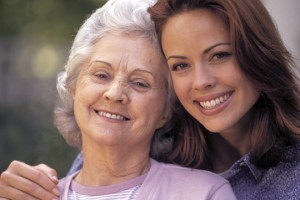Such a great article, I had to share!
Taking Care of YOU: Self-Care for Family Caregivers
Taking Care of You
First, Care for Yourself
On an airplane, an oxygen mask descends in front of you. What do you do? As we all know, the first rule is to put on your own oxygen mask before you assist anyone else. Only when we first help ourselves can we effectively help others. Caring for yourself is one of the most important—and one of the most often forgotten—things you can do as a caregiver. When your needs are taken care of, the person you care for will benefit, too.
Effects of Caregiving on Health and Well Being
We hear this often:, “My husband is the person with Alzheimer’s, but now I’m the one in the hospital!” Such a situation is all too common. Researchers know a lot about the effects of caregiving on health and well being. For example, if you are a caregiving spouse between the ages of 66 and 96 and are experiencing mental or emotional strain, you have a risk of dying that is 63 percent higher than that of people your age who are not caregivers.1 The combination of loss, prolonged stress, the physical demands of caregiving, and the biological vulnerabilities that come with age place you at risk for significant health problems as well as an earlier death.
Older caregivers are not the only ones who put their health and well being at risk. If you are a baby boomer who has assumed a caregiver role for your parents while simultaneously juggling work and raising adolescent children, you face an increased risk for depression, chronic illness and a possible decline in quality of life.
But despite these risks, family caregivers of any age are less likely than noncaregivers to practice preventive healthcare and self-care behavior. Regardless of age, sex, and race and ethnicity, caregivers report problems attending to their own health and well-being while managing caregiving responsibilities. They report:
- sleep deprivation
- poor eating habits
- failure to exercise
- failure to stay in bed when ill
- postponement of or failure to make medical appointments for themselves
Family caregivers are also at increased risk for depression and excessive use of alcohol, tobacco and other drugs. Caregiving can be an emotional roller coaster. On the one hand, caring for your family member demonstrates love and commitment and can be a very rewarding personal experience. On the other hand, exhaustion, worry, inadequate resources and continuous care demands are enormously stressful. Caregivers are more likely to have a chronic illness than are non-caregivers namely high cholesterol, high blood pressure and a tendency to be overweight. Studies show that an estimated 46 percent to 59 percent of caregivers are clinically depressed.
Taking Responsibility for Your Own Care
You cannot stop the impact of a chronic or progressive illness or a debilitating injury on someone for whom you care. But there is a great deal that you can do to take responsibility for your personal well being and to get your own needs met…
